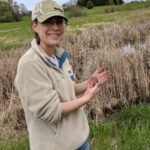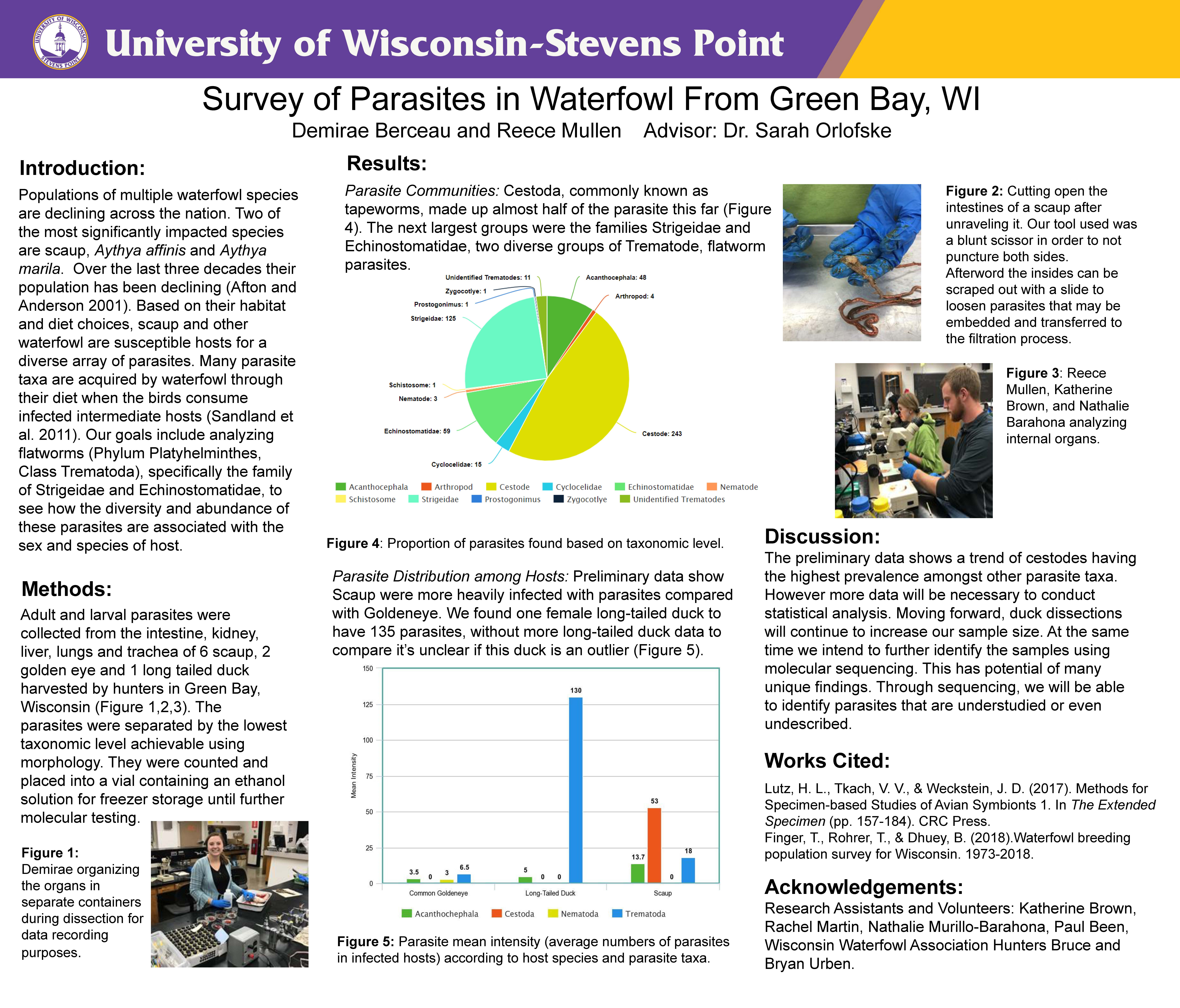 By Sarah A. Orlofske, PhD, Assistant Professor & Curator of Animal Parasites, University of Wisconsin – Stevens Point
By Sarah A. Orlofske, PhD, Assistant Professor & Curator of Animal Parasites, University of Wisconsin – Stevens Point
This article originally appeared in Wisconsin Waterfowl Association’s June, 2020 Open Water Newsletter edition.
In September 2019, I had the opportunity to contribute my first WWA newsletter article and in January I was very pleased to present an overview of my work on waterfowl parasites at the State Meeting. It was a huge honor and a great time interacting with everyone and getting feedback on our work and ideas for future projects. Also, in the January newsletter my students contributed an article that provided an overview of our research, the procedures, and progress to date.
I was thrilled at the beginning of the spring semester that two student researchers and additional volunteers were interested in participating and continuing the research. Reece Mullen and Demirae Berceau were the leaders of the project this semester and wrote a funded grant proposal through our Office of Student Creative Activity and Research program to undertake some of the DNA methods to identify our parasite samples and discover any potentially new species. They also planned to continue dissections of the frozen specimens we had collected from WWA during the fall to look at any differences in parasite load between sexes and species of ducks. In addition, they wrote an abstract to be selected to participate in our College of Letters and Science Spring Symposium. The semester project that was looking so promising was cut short by the COVID-19 closure of our campus. The team was disbanded, but the work continued! Reece and Demirae remained dedicated to the project and completed their poster presentation for the symposium. Included in this article is a copy of their final project poster and a recording of the students describing their work:
. We are proud to share this work with you because without hunter donations our work would not be possible. Thank you!
We plan to continue this work in the Fall 2020 semester when we are allowed back on to campus for research. We hope to complete dissections of more of the frozen specimens, but also possibly collect more carcasses from WWA members to create a more long-term survey dataset depending on the COVID-19 circumstances.

